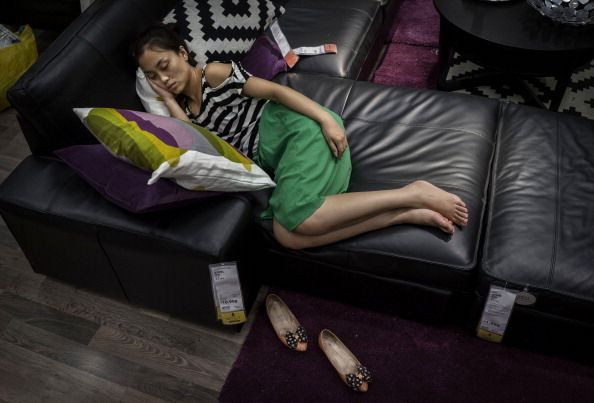Don't Go To Hawaii If You Want A Good Night's Sleep

Where you live, your sex and your age may have something to do with the quality of sleep that you get each night, according to a report from Sleep Cycle Institute.
While poor sleepers tend to eat late at night and have stressful days, the worst place to get a good night’s rest is in Hawaii, the study found. Hawaiians spend the least amount of time in bed, getting up around 6:34 a.m., according to Sleep Cycle. They also have the poorest quality of sleep in the U.S.
When it comes to other geographic locations, the report indicated that residents of Wyoming go to bed the earliest while New Yorkers stay up the latest and wake the latest. The report also showed that the worst mood after sleep goes to people living in Ohio and Maryland.
Neighboring states South Dakota and North Dakota are home to those that wake up in the best mood and snore the least, respectively, Sleep Cycle said. The worst snorers hail from Alaska and Vermonters log in the most time in bed as well as the highest quality of sleep, according to the Institute.
“In addition to factors such as climate, seasonality and daylight times, variations in culture may account for some of the geographical differences in sleep — like what time we have dinner, when we socialize or if we stay up late to do homework,” said Dr. Frida Rangtell, Ph.D., a doctoral student in the Department of Neuroscience at Uppsala University, Sweden.
“Reasons for geographical differences in sleep are most likely interlinked, and regional differences in socioeconomic status, stress, crime levels, unemployment, educational levels, and incidence of chronic disease are other probable contributors. Obesity, for instance, is tightly linked to sleep disturbances. And, of course, people living in urban environments have more exposure to things like traffic noise and light at night that can also disturb a good night’s slumber.”
On average, Americans spend only 7 hours and 18 minutes in bed each night with many going to bed around 11:39 p.m. and waking up at 7:09 a.m., data from the report showed. These sleep cycles are made up of 23.95 minutes of snoring with a 74.2 percent sleep quality and a wake-up mood of 57 out of 100, the report indicated.
What you drink can also affect your sleep quality as Sleep Cycle revealed that daytime coffee and tea drinkers sleep as much as six minutes longer than those that don’t. Sleep quality increased in these individuals by 0.5 to 1 percent, according to the report.
Women also sleep longer than men, getting 14 to 20 minutes more sleep. Women 55-74 years of age spend the most time in bed while men ages 35-54 spend the least.
So how can an individual get better sleep? Sleep Cycle discovered that those who exercise get better sleep no matter their age or gender – as much as 10 minutes more. However, there is good news for sleepers as Americans got six more minutes of sleep in 2018 (7 hours and 21 minutes) than they did in 2015 (7 hours and 15 minutes).
Sleep Cycle said data for its report was made up of 3 million active users from its app over a three-year period or 148,116, 221 nights of sleep.
© Copyright IBTimes 2025. All rights reserved.





















